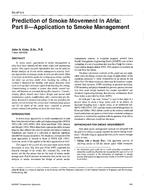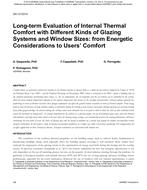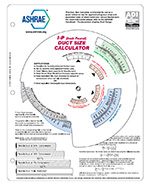Stratified air ventilation systems such as displacement ventilation can provide better indoor air quality with enhance ventilation effectiveness compared to the traditional overhead mixing systems. In the case of displacement ventilation systems the higher supply air temperatures combine with the low supply airflow rates can also provide higher energy efficiency. However the size and locations of displacement diffusers as well as the strength, location, and type of the sensible heat loads can affect the performance of the displacement ventilation systems.
This paper with the help of Computational Fluid Dynamics (CFD) simulations describes comparative performance of the displacement ventilation with traditional overhead mixing system for a two-story lobby of a healthcare facility with identical winter heating and summer cooling heat loads. CFD results reveal three-dimensional airflow patterns, resulting temperatures distribution along with the occupant thermal comfort parameters for each case.
Product Details
- Published:
- 2013
- Number of Pages:
- 7
- File Size:
- 1 file , 1.4 MB
- Product Code(s):
- D-DA-13-C036
- Note:
- This product is unavailable in Russia, Belarus


